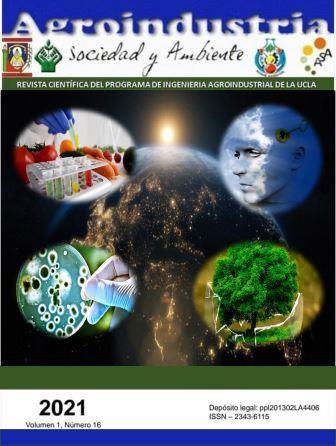Routine management plan in the distribution warehouse
Keywords:
Management, warehouse, process indicatorsAbstract
The present investigation studied the problem framed in 41% of quarterly incomplete orders for automotive parts that were not found at the time of assembling the orders, despite the fact that the inventory system indicated their existence. To solve the situation, the general objective was to "Design a plan for routine management in the warehouse of the automotive spare parts distributor Mayorvenca CA". It was developed through the PDCA cycle methodology applied to a population of 6 people and using as information gathering instruments: brainstorming, the affinity and cause-effect diagram, the 5W and 1H and the checklist between others. Once the plan was implemented, the following results were obtained: that, with respect to the total of incomplete orders, 85% was due to the lack of a precise location and the other 15% due to errors in the inventory system, both causes were reduced to 0%; Regarding the process indicators, the Time to Load the Order (TCP) took up to 40 minutes and the Time to Take the Order (TSP) took up to 2 days, both indicators reached their target value of 10 and 15 minutes respectively. Thus, it was concluded in the reduction of 0% of incomplete orders.
Downloads
References
Acosta, B. (2014). “Optimización del Control de Calidad de la materia prima en la producción de pintura automotriz”. Caracas, Venezuela: USB.
Agapito, L. (2011). “Propuesta para mejorar el nivel de servicio de los centros de distribución en una empresa embotelladora”. Tesis para obtener el grado de Maestría en Ingeniería Industrial. México, D.F.
Arias, F (2006) “Mitos y errores en la elaboración de tesis y proyectos de investigación”. (Tercera Edición). Caracas, Venezuela.
Balestrini, A. (2006). “Cómo se elabora el proyecto de investigación”. (Séptima Edición). Caracas, Venezuela: Consultores Asociados.
Camargo, R. (2011). “Plan de gestión diaria para mejorar la productividad en el departamento de ventas de una empresa de cosméticos”. Trabajo de grado para optar al título de magister Scientiarum en Ingeniería Industrial. Región Centro-Occidental, Venezuela.
Cerda, H. (1991). “Los Elementos de la Investigación”. Bogotá, Colombia: Editorial El Búho. (1° Edición).
DIPLOMADO DE GESTIÓN OPERATIVA PYMES (2012). Barquisimeto, Venezuela: UNEXPO.
Falconi, V. (1992). “Gerenciamiento de la Rutina del Trabajo Cotidiano”. Bello Horizonte, Brasil: Fundación Cristiano Otón.
Galarza, P. (2011). “Aplicación de un proceso de mejora continua en un taller mecánico utilizando la técnica de Mantenimiento Productivo Total (TPM)”. Guayaquil, Ecuador.
Gamboa, M. (2015). “Estrategias para la reducción de las mermas del proceso de elaboración de sacos de papel bajo el enfoque del mejoramiento continuo y el ciclo PDCA”. Trabajo de grado para optar al título de magíster Scientiarum en Ingeniería Industrial. Carabobo, Venezuela.
Hernández, R., Fernández, C. Collado y P. Baptista Lucio P. (2010). “Metodología de la Investigación”. (Quinta Edición). Perú: McGraw Hill.
Hurtado, J. (2007). “El Proyecto de Investigación”. (Quinta Edición). Caracas, Venezuela: Ediciones Quirón-Sypal.
Kerlinger, F. (1998). “Investigación del Comportamiento. Técnicas y Metodología”. México: Editorial McGraw Hill Interamericana.
Lokad (2017). “Análisis ABC (Inventario)”. Disponible en línea: [https://www.lokad.com/es/definicion-analisis-abc-(inventario)]. Fecha de consulta: [agosto, 17].
López, M. (2011). “Plan para reducir la generación de dicetonas totales en el proceso fermentativo de una empresa Cervecera, Basado en el ciclo PDCA”. Trabajo de grado para optar al título de magister Scientiarum en Ingeniería Industrial. Barquisimeto, Venezuela.
Published
How to Cite
Issue
Section
Copyright (c) 2021 Thais Uzcátegui Flores , Juan Pernalete, Marisela Estanga, Diana Posada

This work is licensed under a Creative Commons Attribution-NonCommercial-ShareAlike 4.0 International License.




